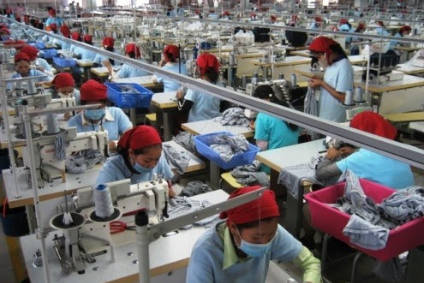
A research project has given one of the most comprehensive pictures yet of the living and working conditions faced by female garment workers in Bangladesh, Cambodia and India.
Led by global non-profit Microfinance Opportunities (MFO) in partnership with Fashion Revolution and C&A Foundation, the project took place over 12 months, during which time, researchers visited 540 workers at their homes to learn about what they earn, working conditions, and how they spend their time each day.
“By listening to their stories, we identified patterns of behaviour within and across countries,” said Eric Noggle, research director, MFO. “This gives brands something to consider above and beyond their margins when deciding where to make their clothes. Their decisions have a real and meaningful impact on the lives of these women and their families.”
Published yesterday (20 February), the reports coincide with the presentation of ‘Fashion Focus: the fundamental right to a living wage’ in the European Parliament.
“The diaries provide a dynamic picture of the daily lives of women garment workers: their regular earning and spending habits, as well as how they cope with the ups and downs of life,” adds MFO’s executive director, Guy Stuart. “What we see are stories of endurance in face of a difficult combination of low wages and economic uncertainty.”
In Bangladesh, the second largest exporter of clothing globally in terms of US dollars, women were found to be earning the least of the three countries per hour. On average, they worked 60 hours per week and earned an hourly rate of 28 taka (US$0.95 in purchasing power parity). They earned less than the minimum hourly wage 64% of the time and researchers say there was significant evidence to suggest the more they worked the less they earned.

US Tariffs are shifting - will you react or anticipate?
Don’t let policy changes catch you off guard. Stay proactive with real-time data and expert analysis.
By GlobalDataIn Cambodia, workers sought overtime hours to boost their incomes, but in many cases were not paid a legal wage for these hours. On average, they worked 48 hours a week and earned an hourly rate of 3,500 riels (US$2.53 in purchasing power parity). Despite earning the minimum wage and supplementing their income with overtime hours, most workers still faced financial strain, researchers say, and at certain points throughout the year this resulted in limited access to quality food and medical care.
In comparison, India’s workers – a sample of export-oriented factory employees in the southwest of Bangalore – typically earned the legal minimum wage or higher and paid into pension and state insurance programmes. On average, they worked 46 hours per week and earned an hourly rate of 39.68 rupees (US$2.27 in purchasing power parity). The research found they were often exposed to verbal abuse by their supervisors and relied heavily on income from their husbands or other household earners to meet their financial obligations, but lived in comparative comfort to workers in Bangladesh or Cambodia.
The MFO, Fashion Revolution and C&A Foundation are hoping the projects’ findings will be an effective tool for workers, factories, brands, and governments to “make change and leverage positive movements in target countries as many of them continue to source clothing from factories employing workers who struggle to make ends meet”.
They add: “This is an opportunity for key global stakeholders to work collaboratively and bring about systemic change in the garment industry.”
Click here to access the diaries.



